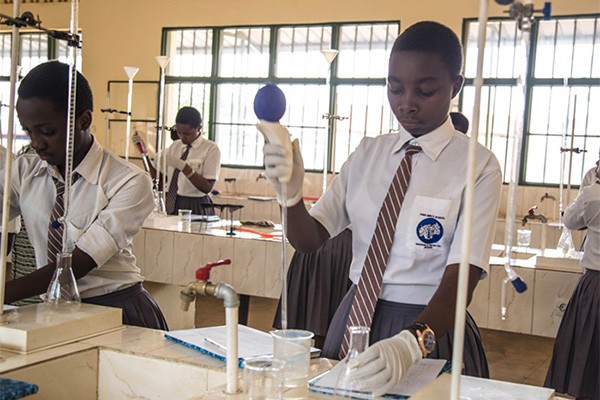When you talk about Science the first thing that goes through many people’s minds is the complex bit of it all. Science teaching and learning for all is not a battle cry for science teachers but represents one of the most important challenges that can be addressed in terms of seeing its application for all students of different narratives and backgrounds. There are so many factors that challenge science teaching, a few include;

We believe that the best way forward is to provide the highest grade of ‘science education for citizenship’ for all students.
- Students generally lack motivation and have low self confidence in learning.
- Insufficient physical conditions of schools (less laboratory opportunities)
- Too much theory, less practical skills.
- Inadequate teacher compensation and professional development to attract, prepare and retain high-quality teachers
- Students’ attitude towards science subjects.
- So much of what is taught in science is uninteresting because it is not related to our everyday lives.
- The most interesting science topics not being on the school curriculum.
Science subjects are generally difficult compared to the arts subject. students normally weigh options and consider the easy ones.
RELATED: Can Science Explain How Long You Stay in Education?
How to overcome
- As science teachers,It is vital that we increase the interest of students in science. The science that the majority of the population will experience, is the key goal in school science. School science necessarily implies practical work of different sorts. For a number of reasons, both for managing the class and for good reasons, students work in groups to carry out science investigations. Given appropriate support from their teachers, students can learn that the quality of the outcomes is dependent on the work of all.
2. School science, through the way it is taught and learnt, should help to develop the way that students and future citizens should act. Science itself has its own values and ways of being and school science ought to parallel these
3. Through science learning, students will learn to define and resolve problems and ideas. They will learn to do this through practical data gathering, collecting information from a range of sources, transforming that data to make broader
generalizations
4. Students will come to know basic concepts of science, how to use them to explain and understand the world around them, and how to change it. This is the sort of learning most closely related to current school science around the world.
5. Seeing the beauty of science and developing their creativity and imagination through science should help students become better learners and more willing to carry on learning in science.
RELATED: 9 Strategies For Academic Success In Science Courses.
Assessment for learning leads to relationships that are more productive for children and teachers in the classroom, and to improved attitudes to learning. As well as improving learning in science and for science, these relationships contribute to education through science.
